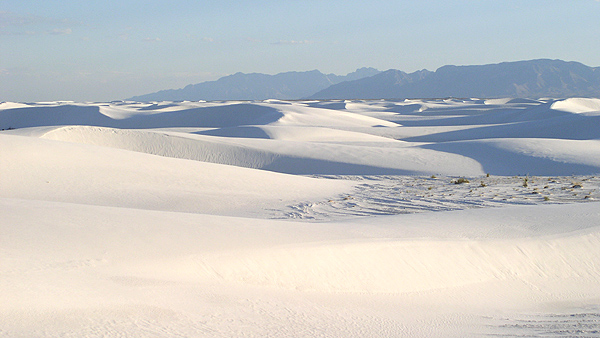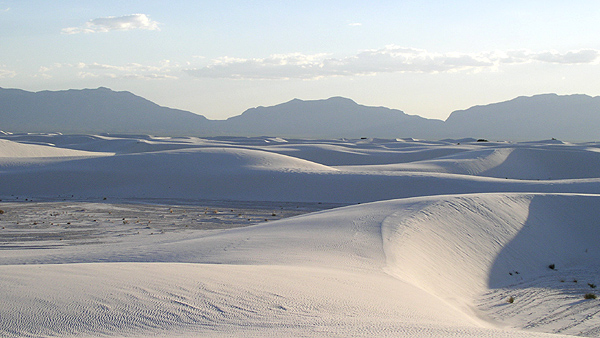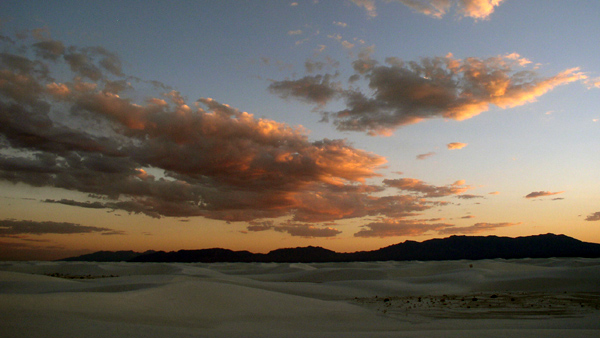Of all the amazing natural wonders in New Mexico, White Sands is surely one of the most amazing.

Situated in the Tularosa Basin near Alamogordo, the Monument consists of 275 square
miles of dazzling white dunes. The dunes are actually made of gypsum
particles, and not the usual beach or desert type sand we're most familiar
with. In fact, White Sands is the largest gypsum dune field in the
world.

How did the dunes get here?
The gypsum that forms the white sands was deposited
at the bottom of a shallow sea that covered this area
250 million
years ago. Eventually turned into stone, these gypsum-bearing
marine deposits were uplifted into a giant dome
70 million years ago
when the Rocky Mountains were formed. Beginning
10 million years ago,
the center of this dome began to collapse and create the Tularosa Basin.
The remaining sides of the original dome formation now form the San
Andres and Sacramento mountain ranges that ring the basin.
The gypsum deposits in these mountains
were
dissolved by rain and washed down into the the basin, collecting in a
normally dry lakebed, Lake Lucero. The water evaporated, leaving the
crystal form of gypsum, called selenite. Some of these crystals grow to
as much as 2-3 feet long.
Most of the selenite existing in Lake
Lucero was deposited there long ago, but sand formation is still
happening today. Weathering and wind erosion break down the
crystals into sand-sized grains, which are carried away by the
prevailing winds from the southwest, and deposited into the dune field.
The dunes change shape constantly, and move slowly downwind.

White Sands is a popular tourist destination, offering spectacular
photo opportunities. Area residents find it a great place for family
outings and picnics, and kids especially love it here.
A loop drive
through the dunes allows visitors a close look at the shifting sands,
with picnic shelters and restrooms along the way. A modern visitor
center and gift shop are near the entrance to the monument. Programs and
Park Ranger tours are available throughout the year, but there are
no camping facilities within the park.




